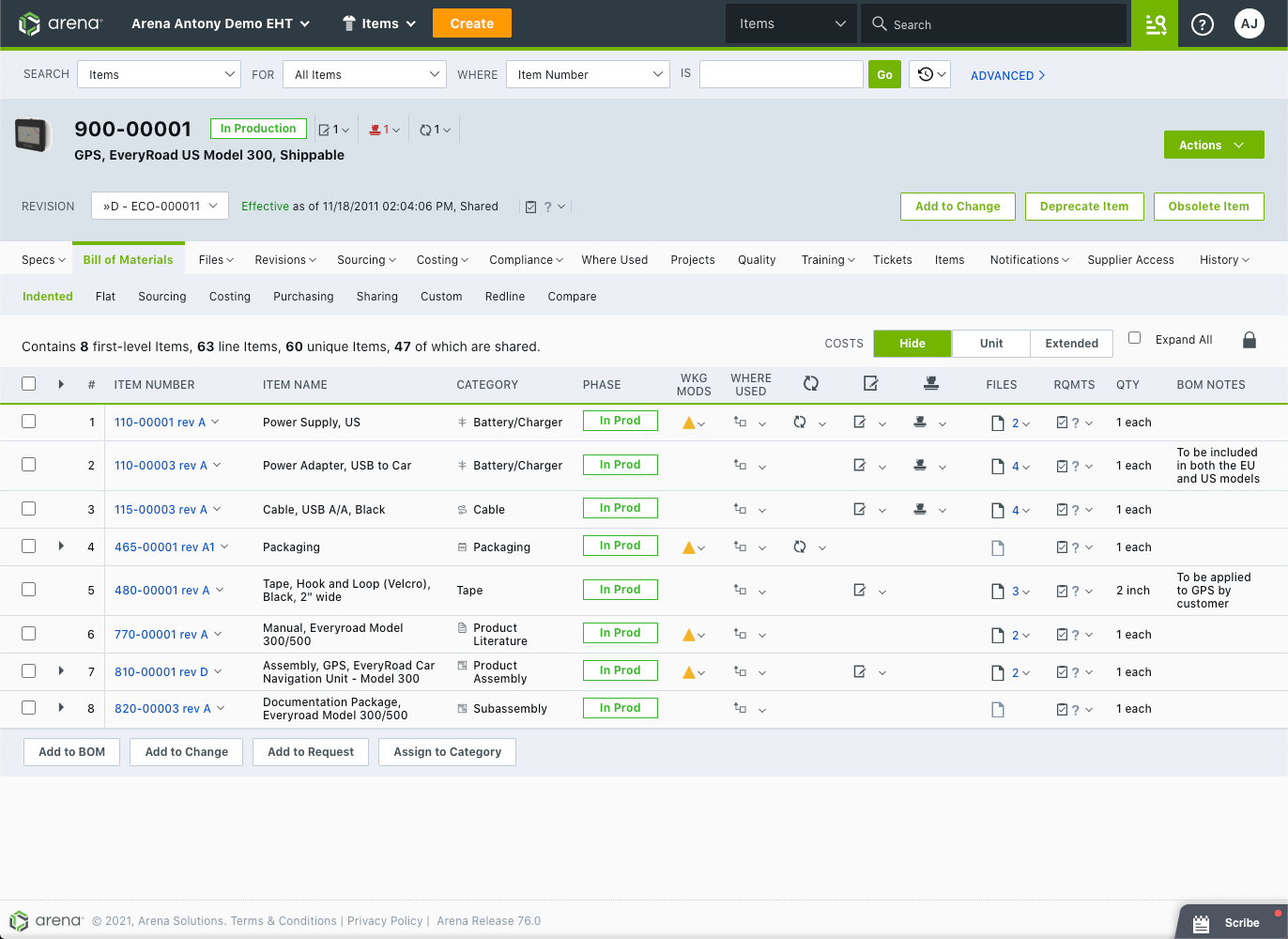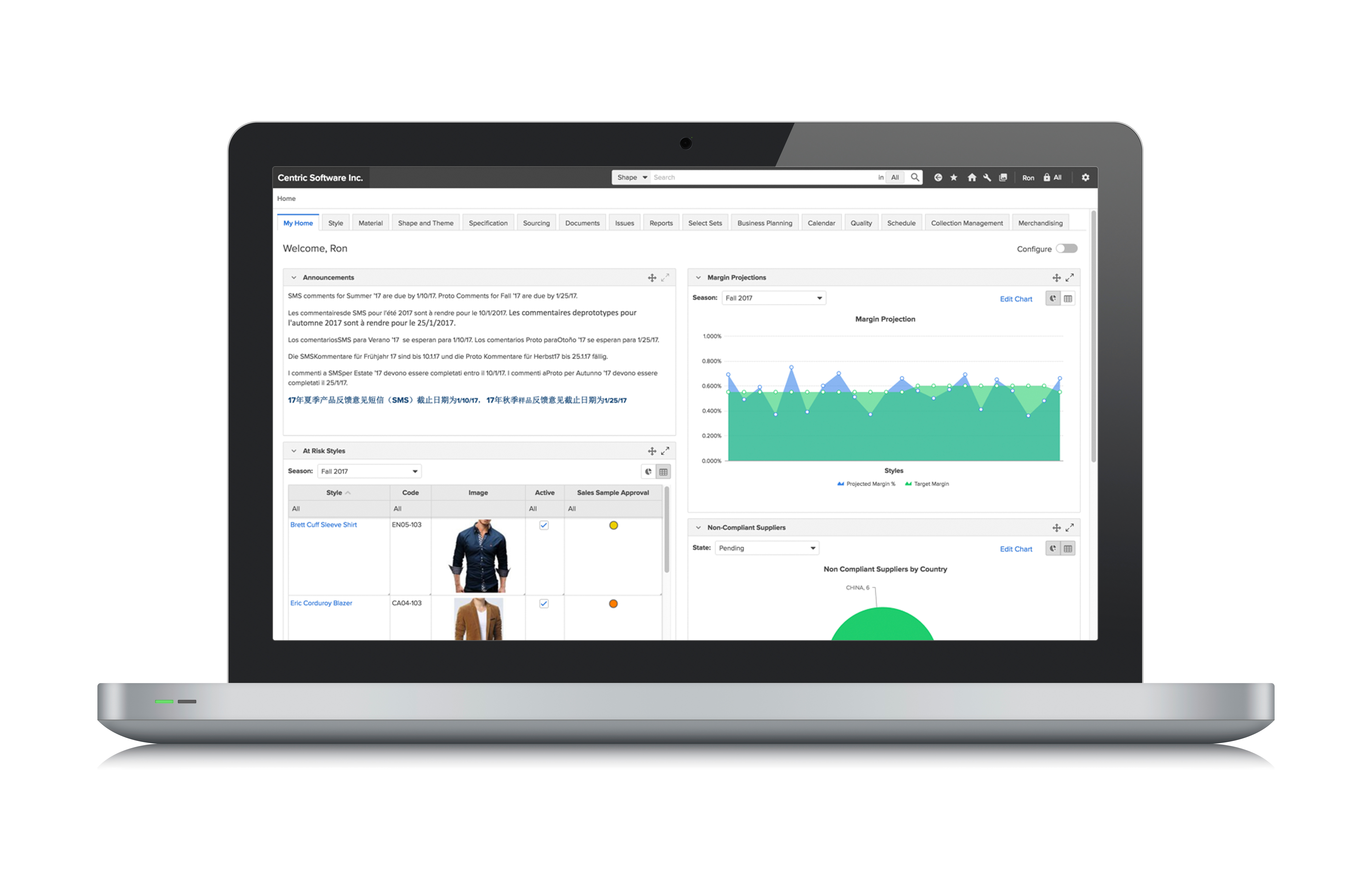Alternatives to Autodesk Fusion Lifecycle
1. Arena Solutions
+Pros
- Rapid deployment capabilities
- Regulatory compliance automation
- Cloud-native architecture
- User-friendly interface
-Cons
- Limited AI capabilities
- Scalability concerns
- Integration constraints with legacy systems
- User experience challenges
One highlighted feature and why it's amazing
Provides unified BOM management, automated workflow routing, and supply chain collaboration tools built specifically for cloud deployment .

Another highlighted feature of why it’s amazing
Particularly FDA 21 CFR Part 11 compliance and ISO documentation requirements for medical device manufacturers .
2. Centric PLM
+Pros
- Proven vertical specialization in fashion and retail that delivers deeper industry-specific functionality compared to industrial-focused competitors .
- AI visual search capabilities provide competitive differentiation through material matching functionality designed to reduce physical sample library dependency .
- Comprehensive ERP integration with 80+ systems plus Adobe Illustrator connectivity offers extensive ecosystem support for creative retail operations .
- Documented customer success includes Woolworths' 15-20% administrative reduction and ADEO's greater than 90% data completeness achievement .
-Cons
- IoT integration capabilities lag behind PTC FlexPLM's manufacturing-focused features, requiring custom API development for sensor connectivity .
- Regulatory compliance depth appears less comprehensive than TraceOne's specialized automation for food and beverage compliance .
- Generative AI capabilities remain restricted to fashion and accessories categories, limiting broader ecommerce vertical applicability .
One highlighted feature and why it's amazing
Delivers 15-20% administrative reduction in documented customer implementations .

Another highlighted feature of why it’s amazing
Eliminate spreadsheet dependency, with ADEO achieving greater than 90% data completeness while maintaining time-to-market goals .
Other Alternatives
Oracle Agile PLM
PTC Windchill/FlexPLM
Propel
Siemens Teamcenter
How We Researched This Guide
About This Guide: This comprehensive analysis is based on extensive competitive intelligence and real-world implementation data from leading AI vendors. StayModern updates this guide quarterly to reflect market developments and vendor performance changes.
292+ verified sources per analysis including official documentation, customer reviews, analyst reports, and industry publications.
- • Vendor documentation & whitepapers
- • Customer testimonials & case studies
- • Third-party analyst assessments
- • Industry benchmarking reports
Standardized assessment framework across 8 key dimensions for objective comparison.
- • Technology capabilities & architecture
- • Market position & customer evidence
- • Implementation experience & support
- • Pricing value & competitive position
Research is refreshed every 90 days to capture market changes and new vendor capabilities.
- • New product releases & features
- • Market positioning changes
- • Customer feedback integration
- • Competitive landscape shifts
Every claim is source-linked with direct citations to original materials for verification.
- • Clickable citation links
- • Original source attribution
- • Date stamps for currency
- • Quality score validation
Analysis follows systematic research protocols with consistent evaluation frameworks.
- • Standardized assessment criteria
- • Multi-source verification process
- • Consistent evaluation methodology
- • Quality assurance protocols
Buyer-focused analysis with transparent methodology and factual accuracy commitment.
- • Objective comparative analysis
- • Transparent research methodology
- • Factual accuracy commitment
- • Continuous quality improvement
Quality Commitment: If you find any inaccuracies in our analysis on this page, please contact us at research@staymodern.ai. We're committed to maintaining the highest standards of research integrity and will investigate and correct any issues promptly.